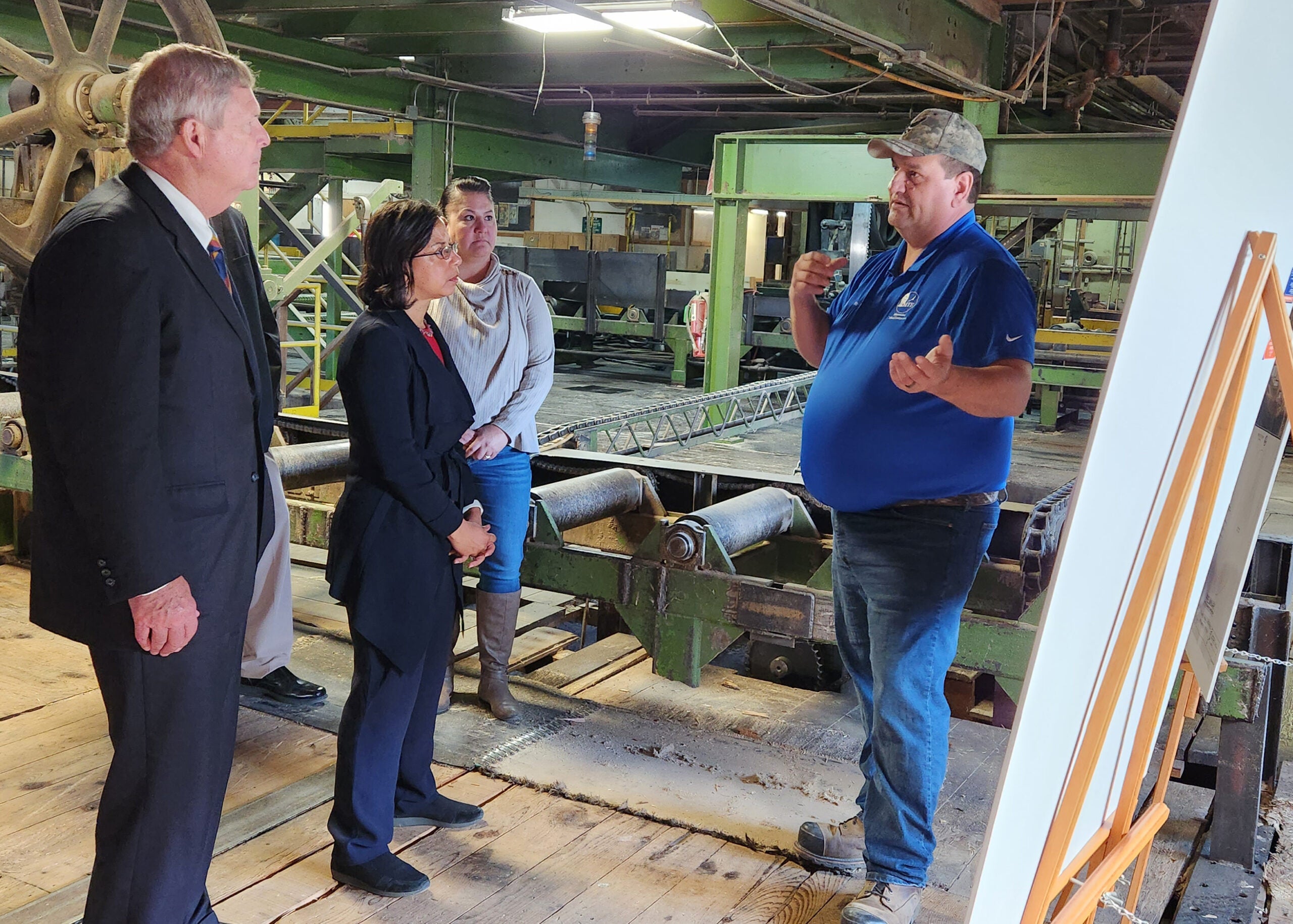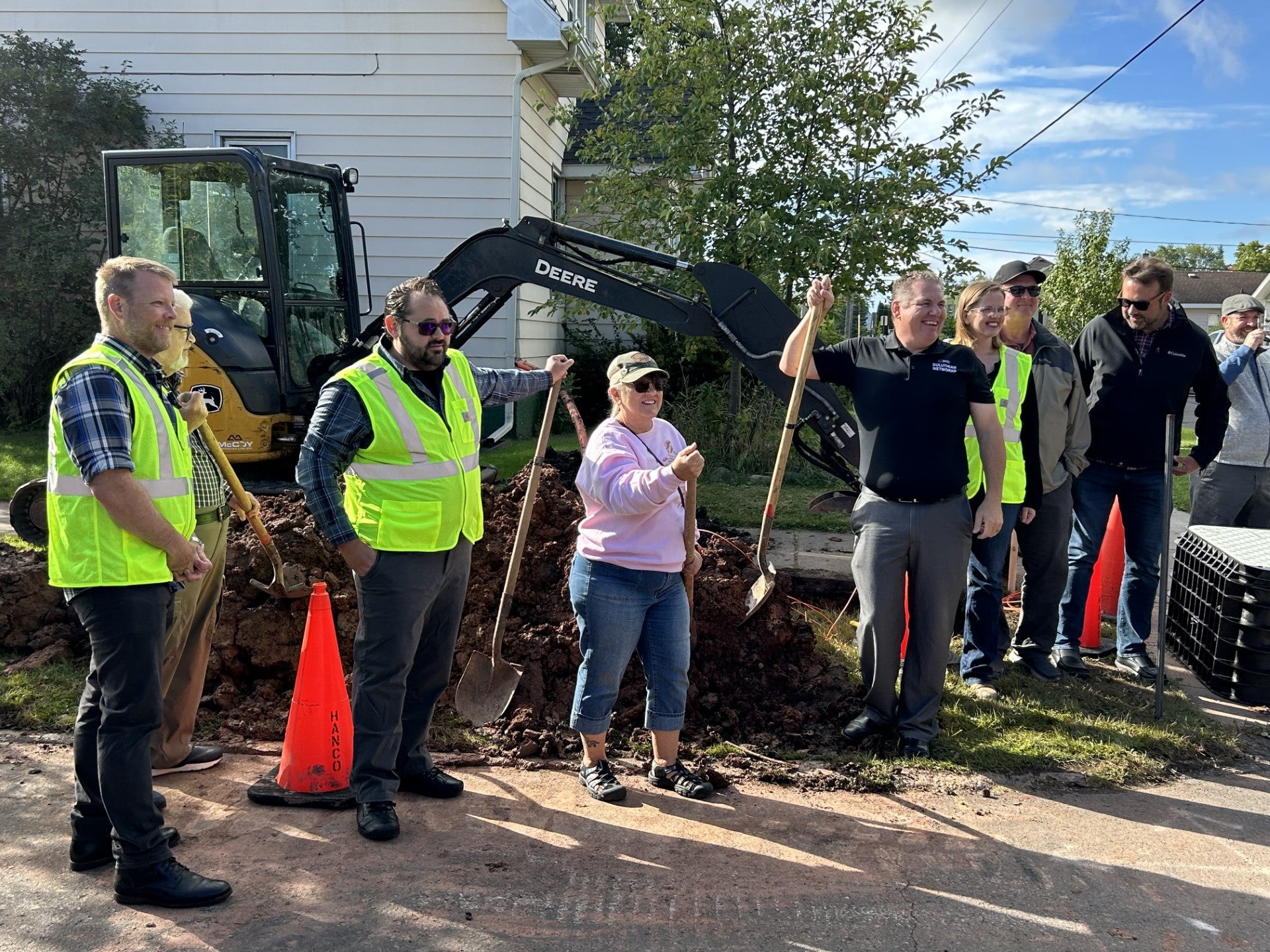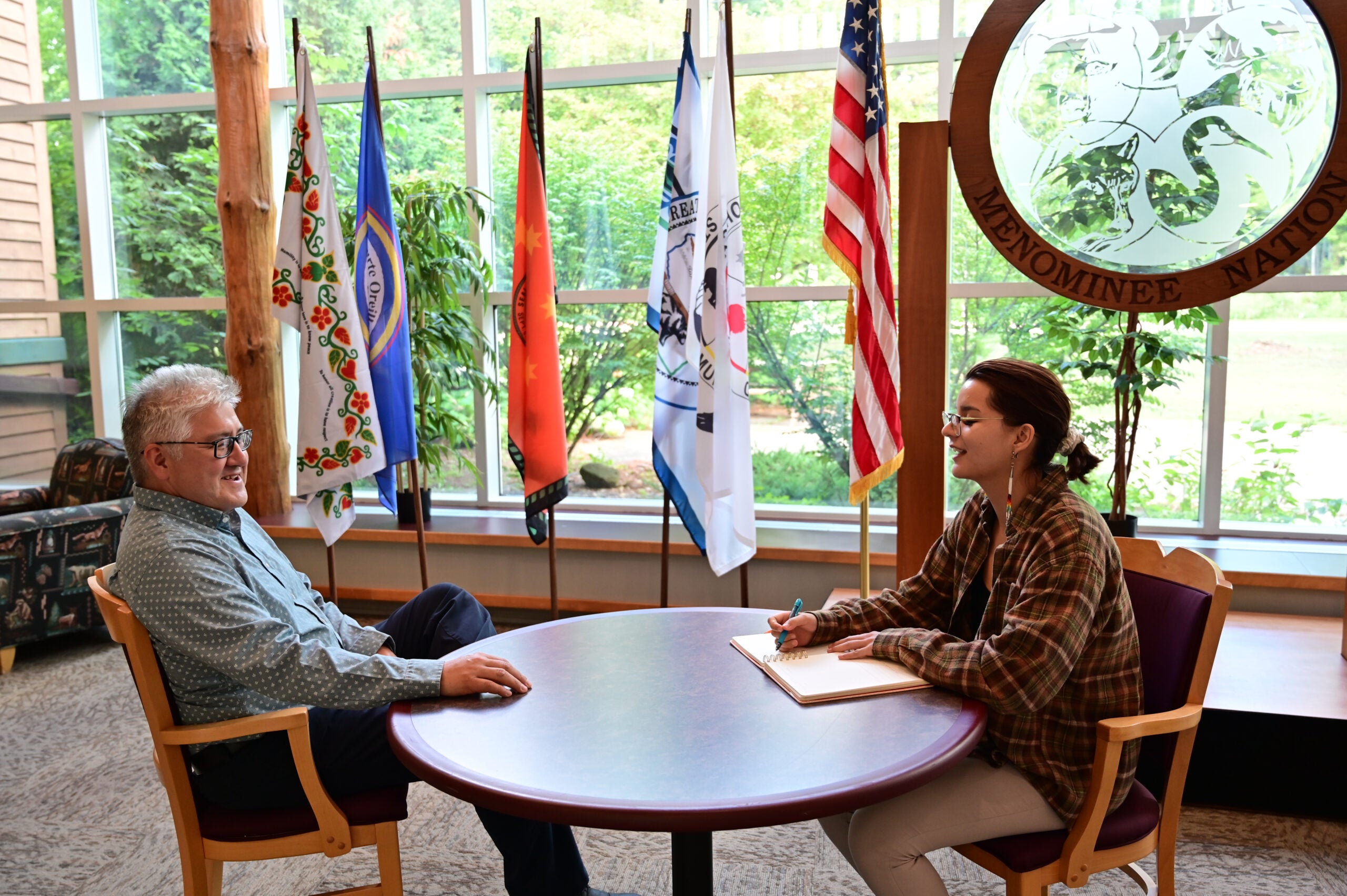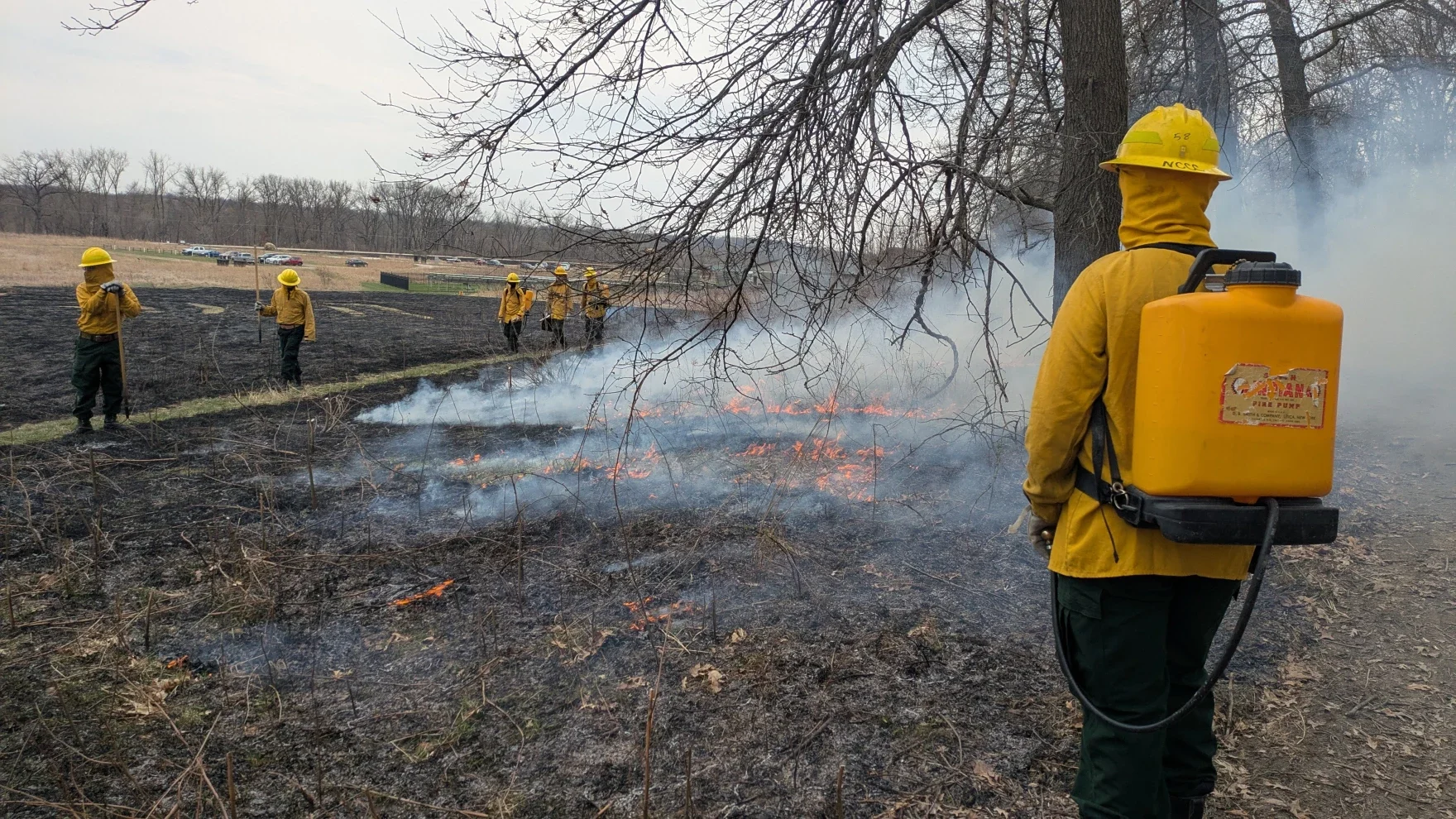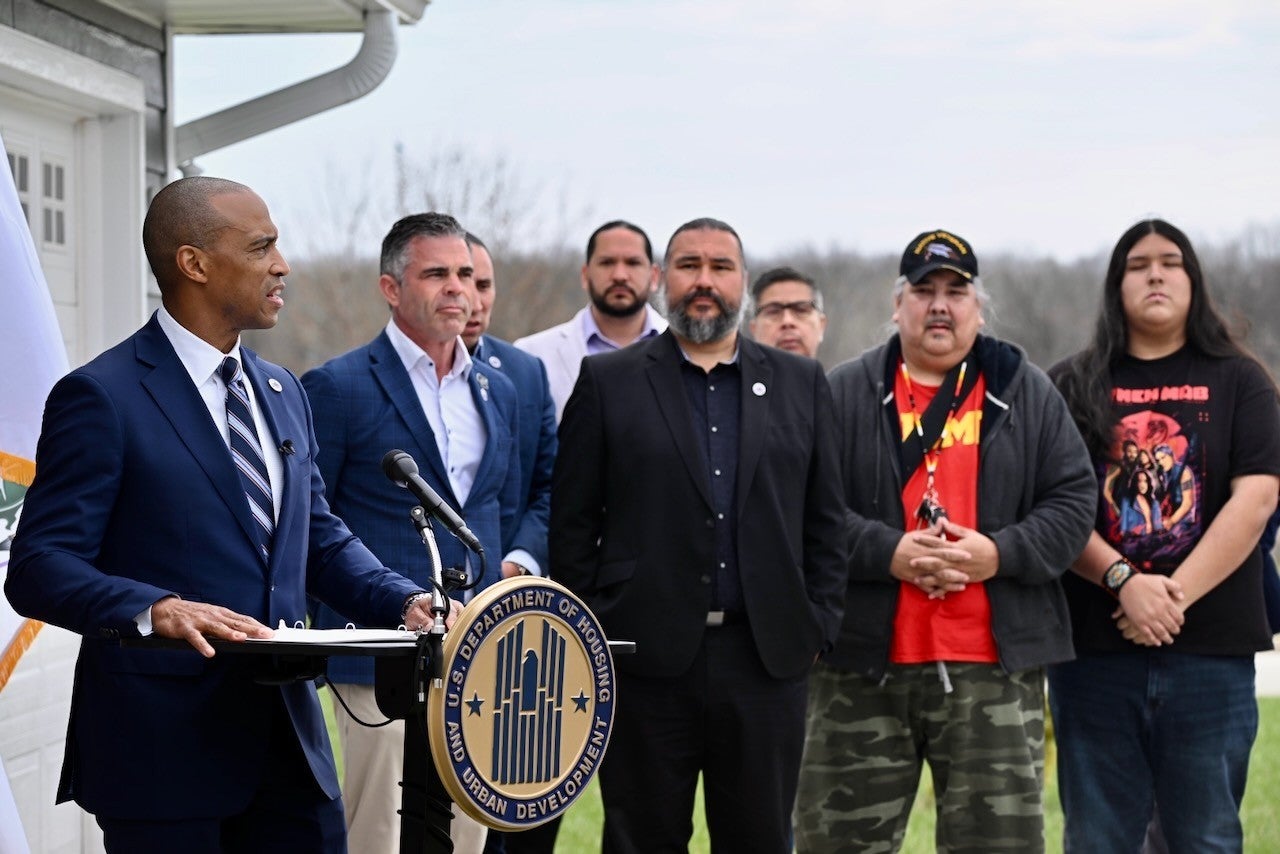Biden Administration officials were in Wisconsin Thursday to announce the expansion of a program to help rural communities.
After touring the Menominee Tribal Enterprises sawmill, U.S. Department of Agriculture Secretary Tom Vilsack and White House Domestic Policy Advisor Susan Rice announced that 12 Wisconsin counties will join the expansion of the Rural Partners Network.
The program offers support from local full-time staff — hired by the department of agriculture — to connect small-town communities with federal resources and funding. It aims to create jobs, build infrastructure and support the long-term economic vitality of rural communities.
News with a little more humanity
WPR’s “Wisconsin Today” newsletter keeps you connected to the state you love without feeling overwhelmed. No paywall. No agenda. No corporate filter.
When the Rural Partners Network launched back in April, Wisconsin wasn’t initially included in the program.
The original partners included communities in Georgia, Kentucky, Mississippi, New Mexico and Arizona. The expansion announced Wednesday included Wisconsin, Alaska, Nevada, North Carolina, and Puerto Rico.
“The Biden-Harris Administration is committed to ensuring that people in rural communities have every opportunity to succeed — and that they can find those opportunities right at home in rural America,” Vilsack said. “Rural people make up America’s spirit and character, and provide the everyday essentials our country depends on. We know that when rural people thrive, America thrives.”
The 12 Wisconsin counties participating in the program are broken into five “community networks.”
The Northern network is composed of Ashland, Iron and Price counties. The Greater Menominee network includes the Menominee Indian Tribe of Wisconsin and all of Menominee County. The Northwestern network includes Eau Claire, Dunn, Clark, Buffalo, Pepin and Chippewa counties. Adams and Forest counties each have their own networks.
Vilsack said the program offers a blueprint for how the federal government can better serve rural communities by ensuring they have a voice in policymaking and empowering them to receive federal funds.
“The Rural Partnership Network is really a new way of doing business between the federal government and communities across the United States,” he said.
The federal government will have a liaison within every domestic agency and department to connect with the full-time employees in rural communities, Vilsack said.
Rural communities sometimes struggle to access federal resources, but the program seeks to change that, Rice said.
She said the Rural Partners Network will help small-town communities “unlock their potential.”
“Our goal is to leverage more than 20 federal agencies and other providers to partner directly with rural people and places so that you have what you need to thrive,” Rice said.
In addition to announcing the program’s expansion into Wisconsin, Vilsack and Rice announced investment in two rural Wisconsin counties.
That includes $1.5 million for Crescent Meats, LLC in Chippewa County to increase production capacity, improve safety and create jobs, as well as a $344,895 grant for the College of Menominee Nation.
The grant for Menominee Nation will help fund facility improvements and add two work trucks and a passenger vehicle for transporting students and staff.
In September, Menominee Tribal Enterprises also received a $5 million grant to construct a new building and replace equipment at the tribe’s sawmill.
Menominee Nation chairman Ron Corn Sr. said he was thankful for the federal support. He said the grant for the college is an investment in the next generation.
“There’s a lot of opportunity to help the college do more,” he said. “The college is doing great things for us.”
Corn said the grant for the sawmill will help the tribe continue its commitment to sustainable forestry practices, as well as provide economic development for the tribe.
“At one time, the revenues from MTE (Menominee Tribal Enterprises) used to provide for all the services of our people,” Corn said. “We’ve grown and expanded, so that’s no longer the case. But it’s a huge piece of the puzzle.”
He said he hopes to continue building the tribe’s relationship with the federal government.
“They’re going to be able to help us to identify needs, programs that can meet those needs (and) assist us in building that better and brighter future for the Menominee people,” Corn said.
Wisconsin Public Radio, © Copyright 2025, Board of Regents of the University of Wisconsin System and Wisconsin Educational Communications Board.

